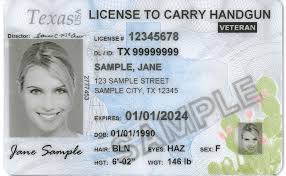Texas Firearm License to Carry WARNING
 THIS IS AN IMPORTANT WARNING for those who currently have a license to carry a handgun!!
THIS IS AN IMPORTANT WARNING for those who currently have a license to carry a handgun!!
Many Texans need a license to carry so they can have some form of personal protection. This is especially true for those who need to travel extensively for work and want to prepare for unexpected situations. However, the law allows Texas DPS to take away (revoke) or suspend a license to carry in certain circumstances. Many LTC holders understand that a criminal conviction is one of those situations and will reluctantly agree to the suspension.
There is one major problem. Texas DPS can suspend your License To Carry BEFORE there is a conviction. The law allows Texas DPS to suspend your license “until the dismissal of the charges” if you have a pending Class A or B misdemeanor or a felony. The upside is that a pending Class C, like a speeding ticket, should not cause and LTC suspension by DPS. If you have an LTC and are looking for a “criminal lawyer near me”, know that Mimi handles most of North Texas.
License to Carry Suspension
Texas Government Code § 411.187 covers suspension of an LTC. Subsection (a)(1) of that statute states:
The department shall suspend a [license to carry] if the license holder:
- is charged with the commission of a Class A or B misdemeanor or equivalent offense, or of [Disorderly Conduct], or of a felony under information or indictment.
Notice the statute uses the word “charged” rather than “convicted” of the offense. This means that if, for example, the police arrest you for DWI (Class A/B misdemeanor), DPS “shall” suspend your LTC. While some people may fall through the cracks, once the state files charges you should expect a notice of suspension for your LTC in the mail.
Subsection (c) of § 411.187 allows the suspension to last until “dismissal of the charges,” which, especially with COVID delays, can be a very long time. A dismissal can mean many different things, from pure dismissal to a conviction. Once a conviction occurs, however, the suspension turns into a revocation.
Texas Government Code § 411.186 covers LTC revocations. DPS “shall” revoke an LTC if a holder “subsequently becomes ineligible” or receives a conviction for UCW. You become ineligible if you have a Class A or B conviction within 5 years or if you have ANY felony conviction (regardless of when it occurred). After a revocation, you may re-apply for an LTC 2 years after the cause of ineligibility (the conviction) ends. This means that you must wait 7 years after a misdemeanor conviction to re-apply for an LTC.
Extra note about Family Violence
An affirmative finding of family violence is usually an absolute bar to eligibility to own a firearm. However, when it comes to Protective Orders, even an agreed Protective Order with no affirmative family violence finding can mean an absolute bar to gun ownership.
More about Mimi Coffey
When people look for a Top DWI Attorney or Best DWI Attorney, they look for experience, certification, and respect in the legal community. Mimi Coffey is a nationally-renowned trial attorney, board-certified in DWI by the NCDD. She has been practicing for over 24 years and is an author of multiple DWI Defense textbooks. She is also a national and state-wide lecturer on the law.
The Coffey Firm handles a wide variety of cases, including Unlawful Carrying Weapon (UCW), Assault (including family violence), Theft, and Possession charges.
Mimi is also listed on several “top” directory listings such as DWI Lawyers for Wise County, DWI Lawyer Tarrant County, DWI attorney Dallas County, DWI attorneys Collin County and DWI attorneys Parker County. Mimi is a caring DWI Lawyer in DFW, She is also involved in the Texas Tech School of Law foundation and enjoys using the skills she has developed to give back to the community.

